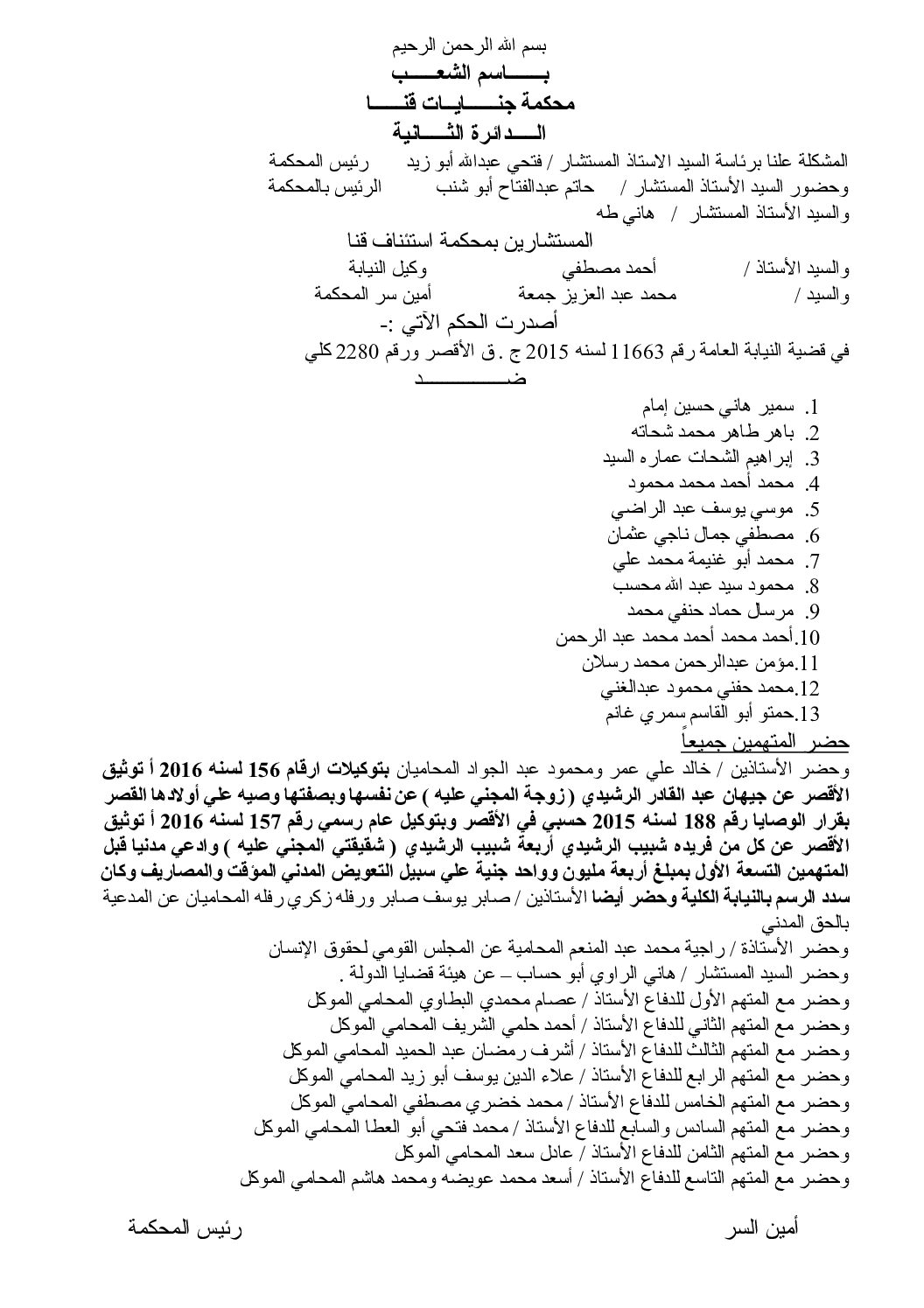ECESR Challenges the Decision to Double the Price of Home Gas
In the context of the campaign by the Egyptian Center for Economic and Social Rights (ECESR) against the International Monetary Fund (IMF) loan to Egypt and its consequences on economic and social policy, lawyers from the center filed Appeal No.38374 for the 67th judicial year at the Administrative Court in Cairo.
It challenges the President of the Republic, the Prime Minister, the Minister of Supply and Trade, the Minister of Petroleum and Mineral Resources, the State Minister for Local Development, and the Minister of Finance concerning the decision to raise prices, which will add another economic burden on the shoulders of all families–including the elderly. The appeal aims to stop the implementation of this decision and its annulment.
The lawsuit indicates that the increase in the price of liquid petroleum gas (LPG), butane cooking gas, comes in parallel with the government’s request of a US$4.8 loan from the IMF.
n a press conference on the fund’s loan, the Prime Minister declared, “We hope that this loan will impact the possibility of receiving further funds from other financial institutions.” This demonstrates the government’s determination to expand its loan requests to other institutions, which will impact Egyptian debt.
However, according to the IMF’s objectives, the agreement will center on increasing state revenue through reducing subsidies, raising taxes, and increasing prices of government commodities. Egypt will also be required to provide guarantees of loan repayment through “funding” from donor institutions as part of the loan conditions.
The IMF states clearly that one of its objectives is to provide financial aid “to reduce disequilibrium in the international balance of payments of member countries.” In this context, local authorities are cooperating closely with the IMF to develop a policy program financed by the Fund. Continued financial support is contingent on how efficiently this program is implemented.
This explains 3 important points:
1) The loan will be provided in instalments. Later payments will stop, in case Egypt does not fulfill the conditions.
2) Close cooperation allows the IMF’s management to closely monitor Egyptian currency.
3) There is a specific program, with particular features, to reduce spending and increase revenue resources. Spending in this case means reducing subsidies, especially on fuel, and funds allocated for government appointment. Revenues consist of raising taxes and the cost of government goods.
In light of the above, the government is seeking to implement IMF conditions and recommendations for the loan by increasing the cost of electricity and by eliminating quotas on animal feed, which impacted the price of red and white meats. This was in addition to the arrangements for bread subsidies and the tax laws package issued through Presidential decrees.
The decision under appeal was issued by the government on 1 April 2013. It increased the price of cooking gas more than threefold, leading to the lawsuit against the decision.
Answering the questions of the economic crisis in Egypt cannot be through increasing prices of basic goods and becoming indebted under unfair conditions that will make the poor even poorer. The response should be through serious steps to stop the bleeding of wasted public money, implementing the decisions to return stolen state assets and funds, reforming the tax system, integrating the huge informal economy in Egypt, and drafting a national development plan that prioritizes the poor and the middle class.
Instead, the regime still clings to the same old policies that violate the rights of the poor and needy.

